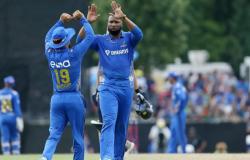Long before anxiety became a clinical affair, it was an existential predicament. The medical condition, an illness in need of treatment, emerged in the 19th century; the philosophical orientation has probably existed for as long as we have, and it cannot (and ought not) to be eradicated. Unfortunately, in recent years, an army of gurus and pathologically positive thinkers have colonized the concept. Along the way, they have forgotten what philosophers have known for centuries: that to be human is to worry, and, consequently, to excel is to worry well. As the Danish philosopher Soren Kierkegaard once put it, “Whoever has learned to be anxious in the right way has learned the ultimate.”
The philosopher and philosophical counselor Samir Chopra invokes the long and distinguished lineage of anxiety in his wise, if sometimes circumlocutory, new book, “Anxiety: A Philosophical Guide.” “My anxiety made me who I am,” he writes in the introduction, “and I could not get rid of my anxieties without ceasing to be myself.”
Although he includes several moving accounts of his own traumas and perturbations, his slim volume is for the most part dedicated to staging a whirlwind tour of the intellectual history of an unjustly revived emotion. Of course, “Anxiety” is not a comprehensive study. Chopra focuses on four schools of thought that illuminate his subject with special acuity: Buddhism, existentialism, psychoanalytic theory and critical theory. All of these traditions are topics of tomes in their own right, and Chopra’s summaries can sometimes feel rushed. It is hard to do justice to thinkers as thorny and absurd as the vehemently anti-Christian iconoclast Friedrich Nietzsche and the Christian existentialist Paul Tillich in a book of this modest size.
Still, “Anxiety” is a useful introduction to the work of thinkers who confront, rather than recoil from, our most fruitfully unpleasant feelings. Perhaps more important, in an age that strives for easy analgesics, Chopra’s book represents an urgent attempt to recover anxiety from those who threaten to medicate or counsel it out of existence. It leads by example, providing a rewarding and challenging alternative to the easy self-help that it implicitly (and sometimes explicitly) criticizes.
Indeed, “Anxiety” opens with a nod to the conventions of the self-help genre that it half-apes and half-mocks. “Every book on anxiety must, perforce, begin with a list of broad sociological observations and statistics, each showing just how common suffering from anxiety is in contemporary society,” Chopra writes. Even worse, he continues, every book on anxiety must insist that the epidemic it diagnoses is unprecedented. A recent book by Jonathan Haidt declares Gen Z the “anxious generation,” but a little historical consciousness suffices to show that any number of previous generations have considered themselves the same thing. Why is our anxiety so persistent, so impervious to remedy? Perhaps, Chopra proposes, because it is a “universal, perennial human condition” — or at least, the philosophical version of it is.
What distinguishes this elevated brand of anxiety from its lesser cousin? Clinical anxiety is, paradigmatically, irrational, but many of the traditions that Chopra investigates regard existential anxiety as a clear-eyed response to our lot. Which aspects of the human condition provoke existential anxiety, however, depends on whom you ask.
Buddhists, for instance, believe that our suffering is bound up with “a true, unblinking understanding of the nature of the world and of human existence’s place in it,” Chopra writes. In other words, we despair not because we fear phantoms but “because we realize we are limited and mortal, in life, in capacity, in achievement.” Sigmund Freud and his followers echo Buddhist concerns, suggesting that anxiety is, roughly, a response to a world riddled with “painful, terrifying losses.” Existentialists like Jean-Paul Sartre and Kierkegaard take a different tack, arguing that anxiety is concomitant with freedom: Once we accept that we are not bound to a single path, we are left to fret about which path(s) to take. And leftist critics like Karl Marx regard anxiety as a social ill, a product of inhabiting “a world constructed on someone else’s terms.”
These accounts are not exactly conflicting — we might be existentially anxious because we are mortal, because we are free and because we exercise little control over the circumstances of our lives—but they are not smoothly congruous, either. If we are anxious because we are compelled to live in a world designed by the wealthy, then perhaps we are not as burdensomely free as the existentialists propose. Furthermore, it is not clear that what Marx famously called “alienation” — the sense of estrangement that laborers endure when they are forced to accept the dictates of their bosses — is really tantamount to anxiety. Chopra does not have the space to make a full case for this dubious identification, nor does he reconcile his characters’ different emphases, which can point in divergent directions.
After all, whether existential anxiety is to some extent curable hinges on what it is. The cure for Marxian alienation would seem to be social and political reform; the cure for the brand of anxiety the Buddhists describe is, in their eyes, recognition that “there is no enduring entity” that is the self, no being whose finitude can trouble us. Chopra’s sympathies, however, are clearly with those who believe that anxiety is — and should be — chronic. “Even if all material gains were to be secured,” he reflects in his chapter on Marxist accounts of alienation, “we would not be free of existential anxiety.”
Still, certain strategies can alleviate anxiety without eliminating or cheapening it. Chopra himself stopped worrying so painfully when he discovered existentialism, which reassured him that there is no one way to be, no single standard to live up to. And philosophy, like psychoanalysis, can reshape our fears. After philosophizing, Chopra writes, “what appears to be a problem is no longer one because in the process of reinterpreting it, we have changed its identity and nature.”
His goal is to show that, even if we are fated to anxiety by our very nature, we needn’t be anxious about being anxious. Against those who would abolish every form of friction or frustration, he insists that anxiety is a way of honoring who and what we are. It is, in his words, “a fundamental human response to our finitude, mortality, and epistemic limitation.” Who knows what sort of truncated beings we would become without it?
Contemplating the prospect of life without anxiety we find, mercifully, yet another horror to worry about.
Becca Rothfeld is the nonfiction book critic for The Washington Post.
Princeton. 185 pp. $27.95






